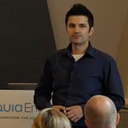Consider the historical context Ethel navigated. The assassination of her husband, Robert F. Kennedy, during a pivotal moment in the Civil Rights Movement, could have understandably led to retreat and despair. Yet, she transformed personal grief into a commitment to continue the fight for equality, embodying resilience and unwavering dedication to the "unfinished business" of her time.
Ethel's activism extended beyond the immediate aftermath of her husband's death. She championed various causes, from education reform to nuclear disarmament, mirroring the spirit of Marshall McLuhan's observation that technological advancements create a "global village," where individual actions have far-reaching consequences. Her persistent advocacy, often conducted outside the traditional political sphere, can be seen as an embodiment of Ivan Illich's critique of institutionalized power, demonstrating how individual agency can disrupt established norms and effect change.
Perhaps Ethel's greatest legacy lies in her unwavering belief in the power of individuals to shape their world. This reminds me of Sartre's call for radical freedom and responsibility. We are all condemned to be free, burdened and empowered to make choices that resonate far beyond our immediate sphere. Let Ethel's life serve as a reminder that confronting injustice and striving for a better future are not abstract ideals, but actionable imperatives within everyone's reach.
